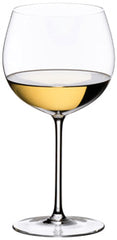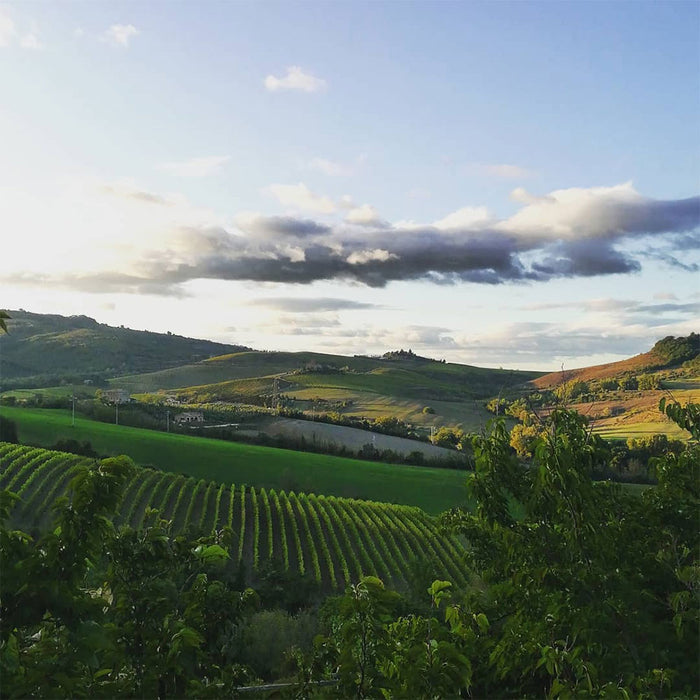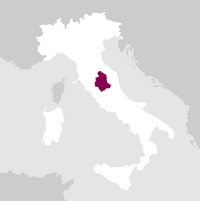Description
From a very small vineyard planted promiscuously with Trebbiano, Verdello and Malvasia grapes mixed in the rows according to the traditions of this area, 'Musco' is born. Produced with ancient tools and equipment in a tuff cave dug under a chestnut wood, without the use of electricity, it ages in chestnut barrels and is first refined in demijohns and then in bottles for several months. Bottling is also done manually. A wine obtained 'by the desire of those who with awareness, knowledge and ancient tools want to keep the memory of a timeless history alive'.
Awards
Details

Perfume

Color

Taste
Serve at:
12 - 14 °C.
Longevity:
05 - 10 years
Decanting time:
1 hour

Pairings
- Start up year: 1969
- Oenologist: Giovanni Dubini
- Bottles produced: 135.000
- Hectares: 24
On the sedimentary and clay soil, with an exciting view of Orvieto's cliff, they plant 24 hectares of vineyards to produce wines of great complexity and character.
Starting in the 1980s, under the guidance of his son Giovanni, Palazzone began a journey made up of small vinifications and bottlings, experiences necessary to arrive in 1988 at the winery's construction. Thus was born one of the most significant wineries in all of Umbria, now in its third generation with grandson Pietro. Read more


| Name | Palazzone Musco 2018 |
|---|---|
| Type | White still |
| Denomination | VdT |
| Vintage | 2018 |
| Size | 0,75 l |
| Alcohol content | 13.0% by volume |
| Grape varieties | 50% Trebbiano Toscano, 30% Verdello, 20% Malvasia |
| Country | Italy |
| Region | Umbria |
| Vendor | Palazzone |
| Origin | Orvieto (Terni). |
| Climate | Altitude: 350 m. a.s.l. Exposure: East. |
| Soil composition | Sedimentary clay. |
| Yield per hectare | 6,000 kg/hectare. |
| Wine making | The must is macerated with the skins for 4/6 days in open vats of chestnut without punch-downs. The pressing is carried out with the aid of an old hand press. The slow fermentation with natural yeasts takes place in chestnut barrels for 1/2 months. |
| Aging | 1 year in chestnut casks, 8 months in glass demijohns and then in bottles lying in the tuff cave for at least 4 months before marketing. |
| Allergens | Contains sulphites |






